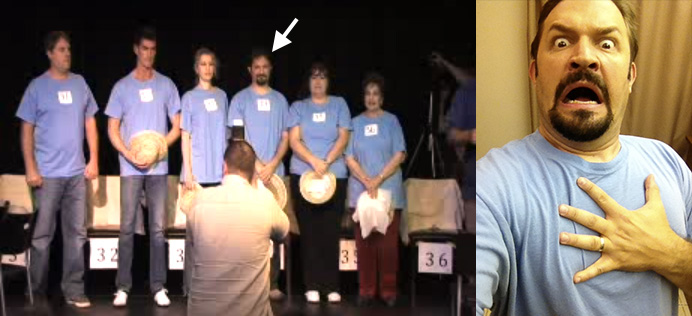(Submitted by friend of the blog, Richard Murray)
In 2011, my wife and I were finishing up final preparations to depart on a two week trip to China. The main part of the trip was thanks to a contest I’d won from the Royal Ontario Museum when they had the Terracotta Warriors travelling show.
Scheduling the trip was somewhat problematic, with blackout dates and weirdnesses around how the airline booked promotional tickets. In some ways, we weren’t even sure if we were going to be getting on a plane when we arrived at the airport that night. The plan was that we were going to Beijing, then Xi’an, and then Shanghai. Hopefully.
I wanted to finish up some work for my friend John’s web site before we left. Another friend, Tom, and I share a web server, and there was a problem that I wasn’t going to be able to address before we left. So, I sent a quick email to John and Tom, and asked Tom if he could take a look at things.
Me: “I took a look at the PHP upgrade, but had this fear of breaking things because it appeared to be installed non-standardy. I’m off to Asia in a couple hours, so… good luck :)”
Tom and I used to work together in Vancouver, on Canada’s West Coast. We’d go out to shows frequently when we lived out there. Since we had moved to Toronto, we haven’t really spoken much; he’s one of those people who’s not all that active on social media, so we only exchange the odd email now and again about tech things.
It wasn’t that unusual when I didn’t hear back from him right away, so we headed out for the airport.
A couple days later, and we were ending our time in Beijing. We had been through the Forbidden City and climbed the Great Wall. We also had plans to meet up with a friend from Vancouver who was now working in the Canadian embassy. She’d moved back to Beijing just in time for us to meet her there for a western style dinner at Blue Frog (in the light of an Apple Store.)
We knew that she might be in Beijing, so this isn’t really much of a coincidence, more just good timing. We said our goodbyes and found a cab and made our way back to the hotel after dinner, and that’s where things got weird. I found Tom had replied to my email from a couple days back.
Tom: “I am also in Asia (Xi’an to be exact) and have been for a couple weeks but I will do the upgrade next weekend.”
We were heading to the airport the following morning to fly to Xi’an.
Me: “Hah. We’re in Xi’an tomorrow afternoon.”
Tom and his partner had originally wanted to go to Turkey, but couldn’t find a decent rate, so they’d decided on something of a whim to go to Xi’an.
After being there for some weeks, he had had his phone off for the past couple days due to the sheer volume of SMS spam you get once you activate a Chinese SIM – it’s insane.
After days without using his phone, he turned it on, checked email, and found my message. He thought it was an amusing enough coincidence that I was headed to the same continent at roughly the same time.
We only had two nights in Xi’an, only one of which was free from plans, this was a remarkably narrow window for us. We arrived, and toured the Terracotta Warrior dig site on our one full day there, as planned, and then we met Tom and his partner for dinner.
Over an amazing 20 course dumpling dinner at Da Fang Chang Dumpling Restaurant, we compared notes on China, and talked a bit about how weird things can just happen. Mostly, we focused on the dumplings… and then we wandered around the night markets looking for more food.
Below are the extended notes provided by Barbara Drescher for use in Skepticality Episode 211. Take a look and leave your comments below. Also, please be sure to listen to the podcast for our own sarcastic and hilarious commentary.
I would like to say that the participants in this story may have gotten ideas from each other by talking about places that they would like to visit. I’d like to, but Xi’an? Still, seeing anyone we know when we are that far from home is always a bit of a shock. The fact that he had just emailed this friend/coworker is not so impressive; how many other people had he emailed shortly before leaving on the trip?
Also, unlike many of the travel stories we receive, this was not a chance meeting. It was merely a coincidence that they were in the same city at the same time. This actually happens to me quite often. In fact, I discovered yesterday that a friend and will be vacationing in the same place at the same time next month. A few years ago, a coworker took a cruise on the same ship as my family just a week before our trip; they were getting off as we were boarding.
The odds are certainly low, but I think what makes this story feel more shocking is the distance from home.



